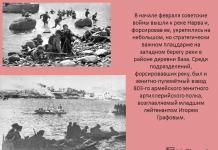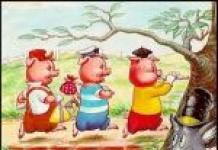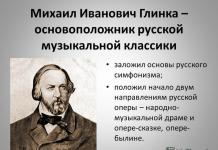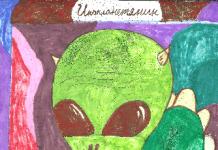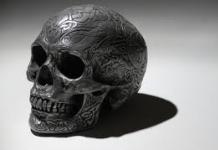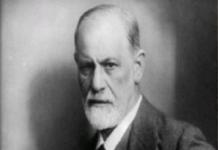The history of the creation of the story “Bezhin Meadow”

In 1846, Ivan Turgenev spent the entire summer and even part of the autumn on his estate in Spassky-Lutovinovo, where he hunted with pleasure and did not engage in writing at all. But as soon as he returned to St. Petersburg, he learned the great news that the now famous and popular Sovremennik magazine had been acquired by Nekrasov and Panaev, who immediately asked Ivan Sergeevich to fill one of the departments of the first issue.
It is known that Turgenev’s observations of nature and peasants in the countryside were enough for him to create wonderful works for several years. When the author was reading his work, one of the listeners, and he was the famous critic Belinsky, was so delighted with the entire collection “Notes of a Hunter,” which includes the story “Bezhin Meadow,” that he could not stand it and exclaimed that the author of this work:
“What a bastard with delicate taste!”
And in 1852, the entire collection “Notes of a Hunter,” which included the wonderful story “Bezhin Meadow,” was able to be published as a separate book. But after its publication, the censor V. Lvov, who allowed the works to be published, was immediately fired, and all his colleagues received a written warning that the censorship should check all books more carefully and study them in their entirety.
The narrative of “Bezhin Meadow” begins with the narrator going out hunting and admiring how the morning comes. Already late at night, returning home, he got lost and goes out to Bezhin meadow, where a huge fire is burning, and several peasant children are sitting near it in the night. Having explained who he is, the writer also sits down by the fire.
 After this, Ivan Turgenev gives a wonderful description of the night, which he really likes for its mystery and mystery. He also describes the boys he saw near the fire. There were five of them in total. The boys are hungry, so they boil potatoes in a pot. After a while, the author goes to bed and soon pretends to be asleep. This gives the boys an opportunity to continue the conversation. The topic of conversation turns out to be very interesting - evil spirits and everything that can be connected with it. For example, Ilyusha’s story about the brownie who lives in a paper factory.
After this, Ivan Turgenev gives a wonderful description of the night, which he really likes for its mystery and mystery. He also describes the boys he saw near the fire. There were five of them in total. The boys are hungry, so they boil potatoes in a pot. After a while, the author goes to bed and soon pretends to be asleep. This gives the boys an opportunity to continue the conversation. The topic of conversation turns out to be very interesting - evil spirits and everything that can be connected with it. For example, Ilyusha’s story about the brownie who lives in a paper factory.
 The following is Kostya's story, which tells an incident that happened to a local sweater, and which made him such a gloomy type. It turned out that Gavrila met a mermaid whom he fell in love with. And again Ilya’s story about the drowned man sounds. At this moment, the dogs suddenly burst out of their seats and rush somewhere, barking. But soon everything calms down again, and the stories continue again. I tell the boys about everything: about werewolves, about wolves, and then the topic of their conversation becomes the dead. It is interesting that children are also interested in natural phenomena. They talk about a solar eclipse and try to explain it from a divine point of view.
The following is Kostya's story, which tells an incident that happened to a local sweater, and which made him such a gloomy type. It turned out that Gavrila met a mermaid whom he fell in love with. And again Ilya’s story about the drowned man sounds. At this moment, the dogs suddenly burst out of their seats and rush somewhere, barking. But soon everything calms down again, and the stories continue again. I tell the boys about everything: about werewolves, about wolves, and then the topic of their conversation becomes the dead. It is interesting that children are also interested in natural phenomena. They talk about a solar eclipse and try to explain it from a divine point of view.
Later, a dispute arises between the boys about what kind of evil spirits are found in their area. They remember not only the merman, but also those people who drowned. They even imagined the voice of Vasya, a boy who had recently drowned. This is followed by a description of the night, and then the sky and forest as the sun begins to rise. Soon the narrator leaves the guys. And later he learns that Pavlusha will die by falling from a horse.
Heroes of Turgenev's story “Bezhin Meadow”

In this unusual story, the author decided to use speculation about brownies, goblins and even mermaids, who have long become poetic heroes of folklore. He was able to use the stories that he heard from the mouths of the children without inventing anything, but only correctly put them on paper, preserving the peasant flavor. The author was amazed by the courage and talent of children who live in poor peasant families. Therefore, it was children of different ages that the author decided to show in his story.
He describes the boys in detail. There are five of them in the work:
♦ Fedya.
♦ Pavlusha.
♦ Ilyusha.
First of all, the author begins the reader’s acquaintance with his characters by describing their appearance in detail, and telling everything down to the smallest detail. For example, about Fedya, the author writes that he looked about fourteen years old, but he was very thin and that made him seem slender. I was also attracted by the child’s face, which was beautiful. And this beauty was created due to his subtle and small facial features. His blond hair was also beautiful, which nature created as if it were real curls. There was always some strange smile on his face, either cheerful or absent-minded. And all this was in perfect harmony with her light eyes.
 But if Fedya was from a wealthy family, and he spent time with peasant children for the sake of interest and entertainment, then Pavlusha was the complete opposite. According to the description, his black hair was always tousled. Wide cheekbones and gray eyes stood out on the face. The boy’s face itself was pale and pockmarked, and this made his mouth seem large. But then the author, trying to justify his such a description, writes about the character of the child, who looked straight, thought was visible in his eyes and all his conversations showed that he was a smart boy. But of particular interest was his voice, in which one could hear the strength.
But if Fedya was from a wealthy family, and he spent time with peasant children for the sake of interest and entertainment, then Pavlusha was the complete opposite. According to the description, his black hair was always tousled. Wide cheekbones and gray eyes stood out on the face. The boy’s face itself was pale and pockmarked, and this made his mouth seem large. But then the author, trying to justify his such a description, writes about the character of the child, who looked straight, thought was visible in his eyes and all his conversations showed that he was a smart boy. But of particular interest was his voice, in which one could hear the strength.
The third peasant boy is Ilyusha. According to the description, this was a completely different type. So, the face did not represent anything interesting: the nose had a hump, the oval of the face was elongated. He was a little blind, so he squinted all the time, as if from fire. The boy had a kind of caring expression on his face. It seemed that this concern had already reached the point of some kind of illness or stupidity. The child's eyebrows were always knitted, and he pressed his lips tightly and, looking at them, it seemed that they never moved.
 Kostya, the fourth hero of Turgenev's story, was unlike the previous boys. He looked about ten years old, no more. His whole face was covered in freckles, it was small and very thin. The face was slightly pointed at the bottom, like a squirrel's. The boy's lips were so thin that they could hardly be distinguished on his face. But what gave him a special and strange impression were his eyes, which on his thin face seemed not only large, but huge. Kostya’s eyes were large and shiny, they seemed to want to say something that could not be expressed in words.
Kostya, the fourth hero of Turgenev's story, was unlike the previous boys. He looked about ten years old, no more. His whole face was covered in freckles, it was small and very thin. The face was slightly pointed at the bottom, like a squirrel's. The boy's lips were so thin that they could hardly be distinguished on his face. But what gave him a special and strange impression were his eyes, which on his thin face seemed not only large, but huge. Kostya’s eyes were large and shiny, they seemed to want to say something that could not be expressed in words.
The last hero, the fifth boy, Vanya, was just a baby, about seven years old. The author does not give a detailed description of this child, since when they met he was lying under the matting as if he was sleeping. So, quietly and calmly, he listened to the children’s stories, and only sometimes, in the most interesting places, he stuck his head out, and then one could see that his hair was brown and curly. All the heroes of Turgenev’s essay “Bezhin Meadow” are covered in sadness, sadness and sympathy.
Landscape as depicted by Ivan Turgenev
The landscape in the morning is unusual and described in detail. A clear summer morning began, when the earth awakened and a new day dawned. Such a beautiful landscape is necessary in order not only to prepare for the full disclosure of the theme, but also to create the mood. Many critics noted that the writer used not only color characteristics, but a real “quivering” range of color shades.
 Night, as depicted by Ivan Turgenev, liberates a person spiritually, and then he begins to be tormented by mysteries about how this world was created. The author writes about how he himself peered into the darkness of the night, which solemnly and royally immersed everything around. He saw stars that appear in the sky only at night, and, to the author’s surprise, they flowed and twinkled. Such a beautiful and magnificent night darkness has a positive effect not only on the writer, children also find themselves under this charming nocturnal influence and tell incredible and amazing stories. All their plots, of course, are connected with the natural world and its mysteries.
Night, as depicted by Ivan Turgenev, liberates a person spiritually, and then he begins to be tormented by mysteries about how this world was created. The author writes about how he himself peered into the darkness of the night, which solemnly and royally immersed everything around. He saw stars that appear in the sky only at night, and, to the author’s surprise, they flowed and twinkled. Such a beautiful and magnificent night darkness has a positive effect not only on the writer, children also find themselves under this charming nocturnal influence and tell incredible and amazing stories. All their plots, of course, are connected with the natural world and its mysteries.
With great tenderness, the author shows the rich spiritual world of simple peasant children who so subtly sense the beauty of nature. The author strives to do everything so that the reader can not only respect his little heroes, but also be sure to think about how their fate will turn out later. The author speaks of them as spiritually developed individuals who are gifted by nature, courageous, emotional, honest, and sincere. But in the future it will be difficult for such people to live in harsh reality, since, having high moral principles, they are very demanding of themselves and those around them.
So in his story “Bezhin Meadow” Ivan Sergeevich was able to collect and show the beauty of nature, people, soul. A wonderful story, simple and majestic, where human destinies are intertwined, which themselves are a part of the universe - this is the personification of the future of the entire Russian peasantry.
1) The history of the creation of the collection by I.S. Turgenev "Notes of a Hunter".
In 1845 I.S. Turgenev decided to devote himself entirely to literary activity. Two years before this, Ivan Sergeevich met the famous critic V.G. Belinsky, who was the ideological inspirer of the future collection “Notes of a Hunter”. Summer months I.S. Turgenev spent time in the village, where he devoted all his free time to hunting. Hunters, due to the special wandering nature of their profession, differed from simple serfs: they were more open, sensitive to the beauties of nature, and retained a free and independent mind. Meeting with various hunters from the people, listening to their stories, Turgenev gradually immersed himself in the elements of folk life, and the writer began to formulate an idea for a future literary work. So, in 1847, the first story by I.S. was published in the Sovremennik magazine. Turgenev “Khor and Kapinich”, which laid the foundation for the collection called by the writer “Notes of a Hunter”. Already during Ivan Sergeevich’s lifetime, the collection was very popular.
2) Features of the genre of the work I.S. Turgenev "Bezhin Meadow". Work by I.S. Turgenev's "Running Meadow" is a short story. A story is a short epic work that tells about one or more events in a person’s life.
3) Characteristics of the heroes of the story “Bezhin Meadow”. The character of the hero is revealed by Turgenev through descriptions of appearance, through his attitude to the stories that the boys tell.
The image of Pavlusha. Pavlusha is one of five boys whom the narrator met at the fire that the boys were burning. The whole appearance of the boy speaks of the plight of his family: all his clothes “consisted of a simple, rugged shirt and patched ports.” Outwardly awkward: “hair... tousled, black, gray eyes, wide cheekbones, pale, pockmarked face, mouth, as they say, like a beer kettle, squat, clumsy body,” Pavlusha attracts with his intelligent and direct gaze, as well as strength, sounded in the voice. It is Pavlusha who is entrusted with watching the pot brewing on the fire. This means that this is a familiar thing for the boy. The hero speaks with knowledge about both the fish that flashed on the river and the rolling star: “...Look, it splashed,” he added, turning his face in the direction of the river, “it must be a pike... And there the star rolled.” Pavel behaves more courageously than other guys. When, after Ilyusha’s story about the forest evil spirits, everyone shuddered when they heard someone’s hissing whistle, Pavel shouted: “Eh, you crows!.., why are you alarmed?” - and immediately turned the conversation to an everyday topic, saying that the potatoes were boiled. The hero is well versed in the habits of forest animals and birds: either he hears the cry of a heron, or he explains that a white dove has strayed from the house and is now looking for a place to sleep. Returning from the river, Pavel says that it seemed to him as if a merman was calling him. Ilyusha, who was afraid of everything, notes that this is a bad omen. But Pavel is not afraid to accept, because he believes in fate and believes that “you cannot escape your fate.” At the end of the story, the reader learns about the tragic death of the boy, but not in the water: “he was killed by falling from a horse.” It is Pavlusha who arouses the narrator’s greatest sympathy, since, unafraid, he “rushed after the dogs with a scream.” At this moment he was especially good: “His ugly face, animated by fast driving, burned with bold prowess and firm determination. Without a twig in his hand, at night, he, without hesitation at all, galloped alone towards the wolf...”
Who is the main character of the story? (peasant boys from neighboring villages who guarded the herd)
How did the narrator get to Bezhin Meadow? (he got lost)
Characterize each of the five boys (Fedya, Pavlusha, Ilyusha, Kostya, Vanya) according to the following plan (work carefully with the text of the work of fiction):
Age;
- appearance, features of clothing;
- attitude towards other boys;
- the story being told;
- behavior during any unexpected rustling.
-Which of the boys evokes the narrator’s greatest sympathy? Why? (Pavlusha, because he is the most courageous.)
- Which of the boys understands folk beliefs best of all? On what basis did you draw this conclusion? (Ilyusha, since he is the one who tells the largest number of different stories.)
- Which of the boys behaves most patronizingly? Why? (Fedya, since he is the eldest - he is about fourteen years old - and from a rich family, therefore he went to the field not out of necessity, but for fun.)
4) The image of the narrator in the story.
The narrator in Turgenev's story is an outside observer, a hunter who got lost and accidentally ended up in Bezhin Meadow. The image of the narrator in “Notes of a Hunter” is very necessary and active, appearing in several guises. It’s like a hunter encountering interesting people, when his belonging to a privileged class is not at all important. Either he is a casual spectator or an involuntary witness to a meeting or conversation (“Date”, “Office”). One can feel the class distance: he is a gentleman meeting with gentlemen, recalling previous meetings with persons who shed light on what is happening (“Yermolai and the miller’s wife”). Then the narrator seems to completely dissolve in the narrative (“Singers”). But he is always handsome, noble, and stands closer to the righteous peasants than to the masters. He even takes the side of the oppressed: he persuaded Biryuk to pardon the peasant, and is disgusted with Penochkin and others like him. This is undoubtedly an enlightened “friend of humanity” in the spirit of the forties, preaching social equality, seeing the vices of the serfdom system that oppresses the humiliated and insulted.
5) The role of landscape in the story of I.S. Turgenev "Bezhin Meadow". A passionate lover of nature, Turgenev made extensive use of descriptions of nature in “Notes of a Hunter.” Turgenev treated nature as an elemental force living an independent life. Turgenev's landscapes are strikingly concrete and at the same time covered in the experiences of the narrator and the characters; they are dynamic and closely related to the action. The landscape in Turgenev’s story is not only a background, but also through the description of nature the feelings and experiences of the heroes of the work are revealed.
The story “Bezhin Meadow” begins with a description of a beautiful summer July day. Here I.S. Turgenev uses epithets: “dawn... spreads with a gentle blush”, “the sun is not fiery, not incandescent”, “lilac... fog”, “the color of the sky, light, pale lilac”, metaphors: “sun... floats up peacefully”, “clouds... almost do not budge”, “the colors are all softened”, comparisons: “clouds disappear... like smoke”, “like a carefully carried candle,... an evening star”, which convey beauty , spilled in nature. Landscape sketches reflect the excellent mood and wonderful impressions of the narrator. The state of serene peace and silence emanating from nature is conveyed to the reader, who becomes, as it were, an accomplice in the events and feels, just like the narrator, all the facets of the July day and the approaching evening: both “the scarlet glow... over the darkened earth,” and “the stamp of some touching meekness”, and “accumulated heat”, and the smell of wormwood, rye, buckwheat. The change in landscape conveys the changing mood of the narrator, his anxiety and excitement. Instead of the bright colors of a summer day, dark and black colors appear: “dark and round brown”, “gloomy gloom”, “blackening”, “bluish airy emptiness”. Nature reflects the state of the hunter, therefore the epithets and metaphors used by the writer create an atmosphere of fear: in the ravine “it was mute and deaf”, “places almost completely drowned in darkness”, “no light flickered anywhere, no sound was heard”, “he found himself above a terrible the abyss." Together with the narrator, the reader feels fear and excitement. The landscape in Turgenev's story “Bezhin Meadow” helps the reader to more deeply convey the changing mood of the narrator.
How does a writer begin his work? (from a description of nature)
What time of year is the story about? (July)
Find in the text epithets for the word sun (“not fiery, not red-hot... not dull purple... but bright and welcoming-radiant”)
Choose synonyms for the word sun used by the writer in the text of the story (“mighty luminary”, “scarlet radiance”, etc.)
How does the color scheme of the work gradually change? How does the reader understand that the narrator is lost? (Gradually, light color epithets are replaced by: “a dark and round hillock”, “places ... drowned in darkness”, “above a terrible abyss”, etc.)
Retelling plan
1. Description of pictures of nature.
2. A hunter, having gotten lost, meets boys herding horses in the night.
3. The narrator listens to children's stories about evil spirits and superstitions.
4. The next morning the hunter says goodbye to the boys. After some time, he learns about Pavlusha’s further fate.
Retelling
On a July day, the narrator was hunting in the Chernsky district of the Tula province. When it got dark, the hunter realized that he was lost, and only when he went to the river did he determine where he was. It was Bezhin meadow. Below, under the hill, lights flashed and people swarmed, and he decided to go down to them.
It turned out to be peasant children from a neighboring village who were guarding the herd. We talked a little, the hunter lay down under a bush not far from the fire and began to listen to the boys' stories. There were five of them in total: Fedya, Pavlusha, Ilyusha, Kostya and Vanya. The eldest, Fedya, was fourteen years old. He was slender, handsome, with curly blond hair, light eyes and a constant half-cheerful smile. By all accounts, he belonged to a wealthy family and went to the field not out of necessity, but for fun. The second boy, Pavlusha, had disheveled black hair, gray eyes, a pale, pockmarked face, a large mouth and a huge head. All his clothes consisted of a simple shirt and patched ports. The third, Ilyusha, had a rather insignificant face: elongated, slightly blind, expressing some kind of dull, painful solicitude. His yellow, almost white hair was hidden under a felt cap. He was wearing new bast shoes and onuchi, and a thick rope was holding his black scroll together. He and Pavlusha looked no more than twelve years old. The fourth, Kostya, is a boy of about ten years old, with a thoughtful and sad look. His face was small, covered in freckles, and his large, black, shining eyes stood out. He was short, frail in build, and dressed rather poorly. The last one, Vanya, lay on the ground under the matting and only occasionally stuck his light brown curly head out from under it. He was only seven years old.
They sat around the fire with a pot in which potatoes were boiled, and gradually began to talk. Ilyusha talked about the brownie: after the shift, about ten people spent the night in the roller. At night we heard someone’s footsteps upstairs, then the door opened, but there was no one there, only suddenly one of the forms rose into the air and fell into place again. Everyone got scared and crawled under each other.
Then Kostya told a story that he learned from his aunt. The Sloboda carpenter Gavrila once went into the forest to hunt for nuts and got lost. He dozed off under a tree and suddenly heard someone calling him. He looks, and a mermaid sits on a tree and calls him to her, and laughs. Gavrila had already risen, but the Lord advised him - he crossed himself. The mermaid stopped laughing and began to cry. Gavrila asked why she was crying? The mermaid replied that if he had not crossed himself, he would have lived with her in joy, but now he would be killed until the end of his days. She answered and disappeared. Since then, Gavrila has been walking sadly.
Then the potatoes were boiled and everyone, except Vanya, began to eat. Ilyusha told another story that happened on a broken dam, where a drowned man was once buried. The clerk sent the huntsman Ermil to the post office. Having stayed in the city, he returned at night, drunk. Driving through the dam, I saw a white lamb on the grave of a drowned man. I thought why the good stuff should go to waste, and took the lamb for myself. The horse shied away from him, did not want to let him and the lamb go, but still he sat down and rode on. He rides and looks at the lamb, and he also looks at him, and suddenly the huntsman felt uncomfortable, lambs don’t look like that. He stroked him and said: “Byasha, byasha!” And the ram answered him: “Byasha, byasha!”
Then the dogs barked near the fire and ran away from the fire. Everyone jumped up, and Pavlusha boldly rushed after the dogs. Soon he returned, and the dogs followed him. Ilyusha again began to talk about his Varnavitsy. Once there, they say, an old deceased gentleman was seen. Another woman, Ulyana, sitting on the porch at night on her parents' Saturday, saw a boy walking - Ivashka Fedoseev, who later died, and a woman behind him. I looked closer and it was her...
They were silent for a while, and Pavlusha told how in Shalamov “the sun was no longer visible.” And rumors spread throughout the village that Trishka himself would be seen. Trishka is such an amazing person whom no one can catch and nothing can be done to him. And so, when the “heavenly foreknowledge” came, everyone poured out into the street, waited for Trishka, and then they saw: a man coming from the mountain, and his head was so amazing. Everyone got scared and hid. But it turned out that it was their cooper, Vavila, who bought the jug and put it on his head.
All the boys fell silent, and suddenly a sharp, painful cry was heard over the river. Pavlusha explained that it was a heron screaming. Then Kostya asked if they knew who was moaning pitifully and pitifully in the deep hole along the road between the Kamennaya Ridge and Shashkino? Pavlusha explained that thieves drowned forester Akim there last year. Ilyusha remembered how the other day a man saw a devil who led him through the forest. He is big, dark, with his eyes looking and blinking.
There was a conversation about Akulina, who was pulled out of the river, and since then she has not been herself. Kostya reported a rumor that she herself threw herself into the river because her lover deceived her. And that the boy Vasya drowned in this river, and how this happened, no one still knows. Pavel returned and told how Vasya’s voice called him. Everyone became quiet and began to pack up. Three hours passed unnoticed.
After some time, the narrator learned that in the same year Pavlusha was killed by falling from a horse.
Year of writing: 1850
Genre of the work: story from the series “Notes of a Hunter”
Plot:
The main character of the work, who is also the narrator, goes hunting one fine July day. On the way back, the hero realizes that he is lost and cannot find his way home. Having stopped for the night in a meadow in the company of peasant boys, the narrator, pretending to be asleep, watches the children and listens to their conversations. Suddenly one of the boys rushes after the barking dogs and, after a while, returns with them. At the end of the story, the narrator talks about the tragic death of the boy in the same year.
The main idea of the story is the spiritual beauty of the Russian peasantry. Using the example of peasant children with their prejudices and superstitions, on the one hand, and reckless courage, on the other, the author, through a description of the children’s appearance, through an attitude to their stories, reveals to readers the poetic world of folk superstitions and tales about various “evil spirits,” harmoniously complementing his paintings of wildlife.
Read the summary of Bezhin meadow Turgenev
The main character of the work, who is also the narrator, goes hunting for black grouse in the Tula province. The weather turned out to be wonderful, it was a fine July day, the hunt was successful, the narrator shot a lot of game. In the evening, in a great mood, he returns home with his tired dog, but soon realizes that he is lost. Meanwhile, night is approaching. The narrator wanders into some unfamiliar aspen grove, and then finds himself in some plowed ravine.
Having still not found his way home, the narrator decides to follow the stars at random and accidentally ends up in Bezhin Meadow not far from the river. The narrator notices a fire and people at the foot of the hill. Two dogs rush towards him, barking. Coming closer, he sees village children sitting around the fire. Tired, he decides to spend the night by the fire with these boys who came with a herd of horses and two dogs at night. The narrator pretends to be asleep and gradually watches the children sitting by the fire, gives a description of their appearance, and listens to their conversations.
There are five boys: Fedya, Kostya, Pavlusha, Ilyusha and Vanya. Fedya is a boy of fourteen years old, the eldest of the children, judging by his clothes and demeanor, he comes from a wealthy family. I went with the guys, apparently for fun. Pavlusha is a boy of about twelve years old; the narrator immediately liked him, despite his rather simple appearance: with black hair, an awkward body, a dull face, but overall he gave the impression of a man with a certain inner core.
Ilyusha was twelve years old, hook-nosed, with a dim-sighted face, but knowing many folk signs, beliefs, and stories about evil spirits. Kostya is a boy of about ten years old and the youngest is Vanya, about seven years old, who sleeps under matting almost all night and does not take part in the conversation.
Ilyusha begins the story first. He remembers spending the night with other guys in a paper mill and they heard a brownie there. The children felt as if someone was walking above their heads at night, knocking, and coughing. Then someone came down the stairs towards them and opened the doors. They never saw anyone, but they were still very scared.
The following story is told by Kostya to his comrades - about the carpenter Gavril and his meeting with the mermaid. Gavrila went into the forest to get nuts, but got lost and decided to wait for morning in the forest. Gavrila woke up because someone was calling him. Opening his eyes, he saw a mermaid sitting on the branches, who was calling him to her. As soon as the man made the sign of the cross, the mermaid began to cry. She wished Gavrila that he would also grieve until the end of his days, as she did now. After this meeting, Gavrila began to always walk around sad.
Then Ilyusha starts a conversation about the incident at the dam, that disastrous place where the drowned man was buried. The boy Ilyusha talks about a case when the clerk sent the local huntsman Ermila to the post office, and he returned at night. At the grave of a drowned man, Ermila noticed a beautiful white lamb and decided to take it for himself. Having mounted the horse and continued on his way, Ermila suddenly noticed that the lamb was looking at him literally with human eyes. Yermila began to affectionately stroke the lamb, but it suddenly bared its teeth and began to imitate him.
The boys' conversation is suddenly interrupted by a dog barking. Pavlusha, jumping on his horse, disappears into the darkness. Then he returns with the dogs, saying that they probably sensed a wolf, but there is no need to be afraid. Then the children continue the conversation. Ilyusha talks about the meetings of the residents of Varnavitsa with the late master. He was looking for a gap-grass to get rid of the pressure of the grave. Kostya was surprised that one could see a dead man on an ordinary day, and not on his parents’ Saturday. But Ilyusha claims that this is possible. Ilyusha also talks about a popular belief: if you sit on your parents’ Saturday on the church porch and look at those passing by, you can find out who will die soon. Next, he talks about a certain woman Ulyana, who on such a day saw herself from the outside, wandering past the church porch. Next, the children talk about the solar eclipse, then the conversation turns to goblins.
Then Pavlusha goes to the river to get water, and in his absence the children talk about the merman, remember the drowned Vasya, who accidentally drowned while playing on the bank, and about his poor mother. And Pavlusha, having returned, told his friends that he had heard someone calling him from under the water in Vasya’s voice. Ilyusha notices with fear that this is a bad omen.
After talking for a while, the children fall asleep. The next morning the narrator says goodbye to the children. Then he sadly reports the tragic death of Pavlushi, whom he liked so much, in the same year. The boy was killed by falling from his horse.
Very briefly Bezhin Meadow
In 1847 - 1851 Ivan Turgenev wrote a cycle of stories “Notes of a Hunter,” which included “Bezhin Meadow.” The essence of the story is that in the center of the plot are the guys who went to graze a herd of horses at night. To make time pass unnoticed and not want to sleep, the boys tell various “scary” stories: about the brownie, about the meeting of the carpenter Gavrila with the mermaid, about Akulina, who was “spoiled by the merman.” At the end of the story, one of the guys, Pavel, dies after falling from a horse. And the reason for his death was the voice of a drowned man.
The main idea of the story Bezhin Meadow by Turgenev
The main idea of the classic work “Bezhin Meadow” is that Ivan Sergeevich Turgenev shows the ability to see beauty in the familiar. Shows that, it turns out, a person is able to appreciate the beauty of nature. Draws the reader's attention to the invisible connection between nature and man. And, most importantly, it emphasizes the idea that people of different ages, levels of development, and upbringing are capable of conducting a productive dialogue.
Bezhin meadow Turgenev summary
Turgenev, who is also the narrator, was hunting black grouse one July day. This happened in the Tula province.
The hunter shot enough game and in the evening, tired but happy, returned home. Dusk fell quickly and Turgenev became a little lost. At first he walked for a long time along the aspen forest, then suddenly he found himself in a ravine. Realizing that he was not going exactly there, the narrator decided to navigate by the stars and eventually came to a flat area, which in the Tula province was called Bezhin Meadow. This plain was skirted by a river, not far from which Ivan Sergeevich noticed a fire and figures of people around it.
To rest a little, the narrator decided to approach the people. When he came closer, he saw peasant children who were in night clothes, that is, grazing a herd of horses.
Ivan Sergeevich asked permission to spend the night with them. The kids agreed. Then the narrator lay down by the fire and began to listen carefully to their stories, while at the same time admiring nature.
It must be said that there were five children: Fedya, Pavlusha, Ilyusha, Kostya and Vanya.
Ivan Sergeevich carefully describes the appearance of each boy. Fedya had “beautiful and delicate features.” Pavlusha was clumsy, with a pockmarked face. Ilya's face "expressed some kind of dull, painful solicitude." Kostya puts emphasis on his thoughtful and sad eyes. Vanya was the smallest among the children and slept, covering himself with a matting.
Turgenev pretended to be dozing, while he listened to the leisurely conversation of the boys.
Ilya was the first to talk about how he once had to spend the night at a paper factory. It was that night that he heard the brownie. He says that it is unclear who walked there, knocked, and then opened the doors to the room where the guys were sleeping.
We can sum up his story by quoting Turgenev: “Then it was as if someone came to the door and suddenly started coughing and choking.”
Following Ilya, Kostya began to tell a story about a carpenter named Gavrila. This Gavrila went to collect hazelnuts, but an accident happened to him - he got lost. Then Gavrila decided to spend the night in the forest, and it was at this time that inexplicable events began to happen to him. Firstly, Gavrila began to feel as if someone was calling him. He decided to see who it was and saw a mermaid sitting on a tree. Then, as the Orthodox man Gavrila made the sign of the cross, and the mermaid laughed in response, then burst into tears and said: “If you had not been baptized,” he says, “man, you would have lived with me in joy until the end of your days; but I cry, I am killed because you were baptized; Yes, I won’t be the only one who will kill myself: you too will kill yourself until the end of your days.” With that, she disappeared, and Gavrila stopped even smiling from that time on.
Meanwhile, the night was descending lower and lower, and a sound was heard from the river, similar to a groan and a howl at the same time. Then Elijah remembered God.
Finally the guys calmed down and continued the conversation.
Ilya again began to talk about the dam on the river, which had recently broken, but the important theme of his story was the drowned man buried not far from it.
The main character of his story is Yermil, who was sent to the post office, but for some reason he was late and, crossing the dam, saw a white lamb on the grave of a drowned man. Ermila took the lamb with him. While he was driving him, he noticed that the animal was looking devotedly into his eyes. He decided to stroke it and speak kind words, but the ram bared its teeth and repeated his words like a human...
Suddenly the dogs became worried, and the boys assumed that a wolf had sneaked up on the herd. Pavel then decided to run away and see what was happening there. In the end, it turned out that the herd was not in danger.
The boys' conversation continued smoothly.
Ilya remembered that in the town of Varnavitsy, they often began to see the long-dead master for the reason that the grave “pressed heavily on him.” Kostya expressed his surprise that the dead man is seen not only on Mother’s Day. Then they explained to him that in Radonitsa you can find out who will soon die. To do this, you need to sit on the porch and look at passers-by. For example, Grandma Ulyana saw herself in this way.
The boys were silent for a while. At this time, a white dove flew over them.
At this time, a piercing cry of a heron was heard from the direction of the river. Then it was time to remember the devil. About the fact that the goblin cannot shout, that he is dumb like a fish, but only “claps his hands and cracks.”
Pavel went to the river to get some water. At this moment, the children were discussing the fact that in this case the merman could grab a person and drag him into his underwater kingdom. By the way, they remembered Akulina the fool, who was “spoiled by the merman.” They gave the example of a boy named Vasya, who drowned due to negligence. By this time, Pavel had returned to the fire and told the boys that when he was drawing water, someone called him in Vasyatka’s voice.
As morning approached, the boys' conversation gradually ceased.
Ivan Turgenev woke up early, got ready, nodded goodbye to Pavel and walked along the river to the house.
The narrator ends the story with the following remark: “Unfortunately, I must add that in the same year Paul passed away. He did not drown: he was killed by falling from his horse. It’s a pity, he was a nice guy!”
Picture or drawing of Bezhin meadow
Other retellings and reviews for the reader's diary
- Summary Garshin - What didn’t happen
This tale is either a dream or a vision, inspired by the terrible heat in the afternoon. It was as if humanized insects had gathered in a circle to talk about what life is. Everyone has their own point of view. For example, a dung beetle spends its entire life working
- Summary of Hugo Toilers of the Sea
Once upon a time, a lady named Gilliatt moved into the house with a boy who was either her son or her nephew. Even then this house had a bad reputation among the people. But after the arrival of the woman with the child, all the evil spirits calmed down and stopped visiting the family
- Summary of Herzen Past and Thoughts
“The Past and Thoughts” is one of the most famous works of A.I. Herzen. First, it’s worth figuring out who Herzen is? Herzen is one of the outstanding government critics of his time
- Summary Stroller. Gogol
One landowner wants to sell his stroller to a general who has arrived in the town. He invites him and the participants of the party to his place the next day, but he himself forgets about it.
- Summary of Magic Mountain Mann
The events of the work begin to unfold before the war. Hans Castorp is a young engineer who goes to a sanatorium for tuberculosis patients, where his cousin Joachim Ziemsen is being treated.
Illustration by P. Sokolov
Very briefly
A lost hunter in the night comes across peasant children who are sitting by the fire, guarding horses and telling each other scary stories about goblin, mermaids, brownies and other evil spirits.
The action takes place in the Russian Empire, in the Chernsky district of the Tula province. The narration is told in the first person. The division of the retelling into chapters is conditional.
"Beautiful July Day"
Summer days, when the weather settles, are beautiful. The morning is clear and radiant. By noon, the sky is covered with light golden-gray clouds, from which a small warm rain occasionally falls. Before the evening dawn, the clouds disappear, and the sun sets as calmly as it rose in the sky.
The hunter got lost
It was on such a day that the narrator was hunting black grouse.

Narrator - a man with a gun, a game bag and a dog; his name is not mentioned in the story
In the evening he was returning home and suddenly got lost.
“Where am I?” - I repeated again out loud, stopped for the third time and looked questioningly at my English yellow-piebald dog Dianka.
Climbing a high, sharply sloping hill, he saw below him a huge plain, surrounded by a wide river. The narrator finally recognized the area - in the area it was called Bezhin Meadow.
By the fire at night
Right under the cliff, two fires were burning in the darkness, where five peasant children with two dogs were guarding the horses. During the day, the heat and flies with gadflies did not give the horses any rest, so in the summer they were grazed at night.
Driving out the herd before the evening and bringing in the herd at dawn is a great holiday for peasant boys.
The tired hunter went down to the fires, said that he was lost and asked to spend the night. He lay down under a bush nearby, pretended to be asleep and listened to what the kids were talking about.
The boys boiled potatoes and told stories about evil spirits.
Ilyusha
Most of the stories were told by twelve-year-old Ilyusha, with a hook-nosed, elongated, half-sighted face, on which a dull, preoccupied expression was frozen.

Ilyusha - 12 years old, hook-nosed, long face, yellow hair, neatly dressed, works in a paper mill; superstitious and fearful, believes in the supernatural
The boy was dressed cleanly and neatly, but poorly. Ilyusha's large family, apparently, was not rich, so the boy, along with his two brothers, worked at a paper factory from early childhood. Ilyusha “knew all the rural beliefs better than others” and sincerely believed in them.
Brownie at a paper mill
The first story was about how the clerk ordered Ilyusha and a group of guys to spend the night at a paper factory. Someone suddenly stomped upstairs, went down the stairs, and approached the door. The door swung open, and there was no one behind it. And suddenly someone coughs! Scared the brownie boys.
Talking lamb on the grave of a drowned man
Then Ilyusha spoke about a broken dam, an unclean place where a drowned man was once buried. One day the clerk sent a huntsman to the post office. He returned through the dam late at night. Suddenly he sees a little white lamb sitting on the grave of a drowned man. The huntsman decided to take him with him. The lamb does not escape from your hands, it only looks intently into your eyes. The hound felt terrible, he stroked the lamb and said: “Byasha, byasha!” And the lamb bared his teeth and answered him: “Byasha, byasha!”
The late gentleman looking for the gap-grass
Then Ilyusha spoke about the late gentleman he met at the same dam. The dead man was looking for a gap of grass in the “unclean place” and complained that the grave was pressing on him.
Parents' Saturday
Ilyusha was sure that “you can see the dead at any hour,” and on parental Saturday you can find out who will die this year, you just need to sit on the porch and look at the church road - whoever passes by will die. He talked about a woman who decided to find out who would die this year, went to the porch on her parents’ Saturday and recognized herself in a woman passing by.
Solar eclipse and Trishka
When the conversation turned to the recent “celestial foresight” - a solar eclipse, Ilyusha told the legend about the amazing man Trishka, who will come during the solar eclipse. This Trishka is amazing with his ability to free himself from any shackles and get out of any prison.
Pavlusha
Then Pavlusha also remembered the solar eclipse.

Pavlusha - 12 years old; gray-eyed, big-headed and squat, poorly dressed; brave, tries to explain the incomprehensible, determined and inquisitive
When the sun disappeared, the peasants got scared, and the master's cook broke all the pots in the oven, believing that the end of the world had come and there would be no one to eat cabbage soup. Everyone believed that “white wolves will run across the earth, they will eat people, a bird of prey will fly, or they will even see Trishka himself.”
The peasants went to the field to meet Trishka. Suddenly they see a “sophisticated” man with a strange head walking. Everyone rushed to hide, and it turned out to be not Trishka, but a village cooper who bought a new jug and put it on his head to make it easier to carry. Pavlushin's story amused the boys.
Suddenly, in the midst of the conversation, the dogs started barking and rushed away. Pavlusha rushed after them. When he returned, he said that the dogs sensed the wolf.
Without a twig in his hand, at night, he, without hesitation at all, galloped alone towards the wolf... “What a nice boy!” - I thought, looking at him.
Kostya
Kostya, a small, frail, very poorly dressed and timid boy of about ten years old with a thoughtful and sad look, told two stories.

Kostya - 10 years old, thin and short, poorly dressed; coward, afraid of the unknown, capable of sympathy, believes Ilyusha’s stories
Carpenter meets mermaid
The first is about a carpenter who gets lost in the forest and stumbles upon a mermaid. She sat on a tree branch, called him to her and laughed. The carpenter took it and crossed himself. The mermaid cried pitifully, and then cursed him - the carpenter would grieve until the end of his days. Since then he has been sad and walking around.
The merman who dragged the boy to the bottom
Kostya’s second story was about a boy who was dragged under water by a merman, and his mother went crazy with grief.
Fedya
The eldest of the boys, Fedya, a slender, handsome teenager of about fourteen, belonged, judging by his clothes, to a wealthy family and was the “lead singer” in this company - he treated his friends patronizingly, but kindly, occasionally interrupting them with good-natured ridicule.

Fedya - 14 years old, handsome, well dressed; as an elder, treats friends patronizingly, but kindly, taciturn
Fedya remembered a woman living in his village who was abandoned by her lover. She went to drown herself, and the waterman dragged her to the bottom, and “ruined” her there. The woman was pulled out, but she did not come to her senses and remained a fool.
The narrator regrets that in the same year the “nice guy” Pavel died - he crashed, falling from a horse.







